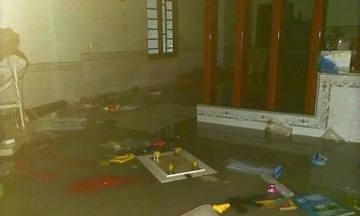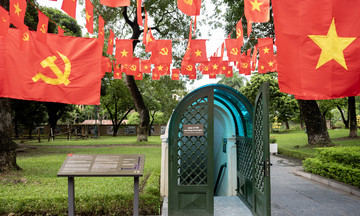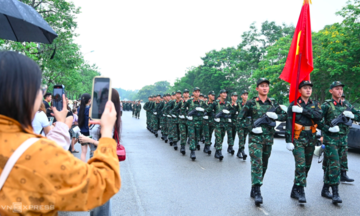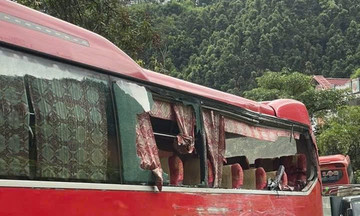Speaking at the groundbreaking ceremony for the Si Pa Phin primary and secondary school in Dien Bien province on 27/7, Party General Secretary To Lam affirmed that education is a top national policy and a key driver of the country's sustainable development.
In recent years, despite many difficulties, the Party and State have paid great attention to border areas. However, the school system, especially boarding schools in border communes, is still lacking, and students' learning conditions are limited.
The General Secretary emphasized that the policy of investing in the construction of 248 boarding schools in border areas is humanitarian and demonstrates the special care of the Party and State for people in border and remote areas facing difficulties.
"Building schools is not only to provide children with better learning conditions but also aims to improve the quality of life for people in border areas in the long term, contributing to safeguarding national sovereignty from its roots: the people and communities attached to the land, forests, and border markers," the General Secretary said.
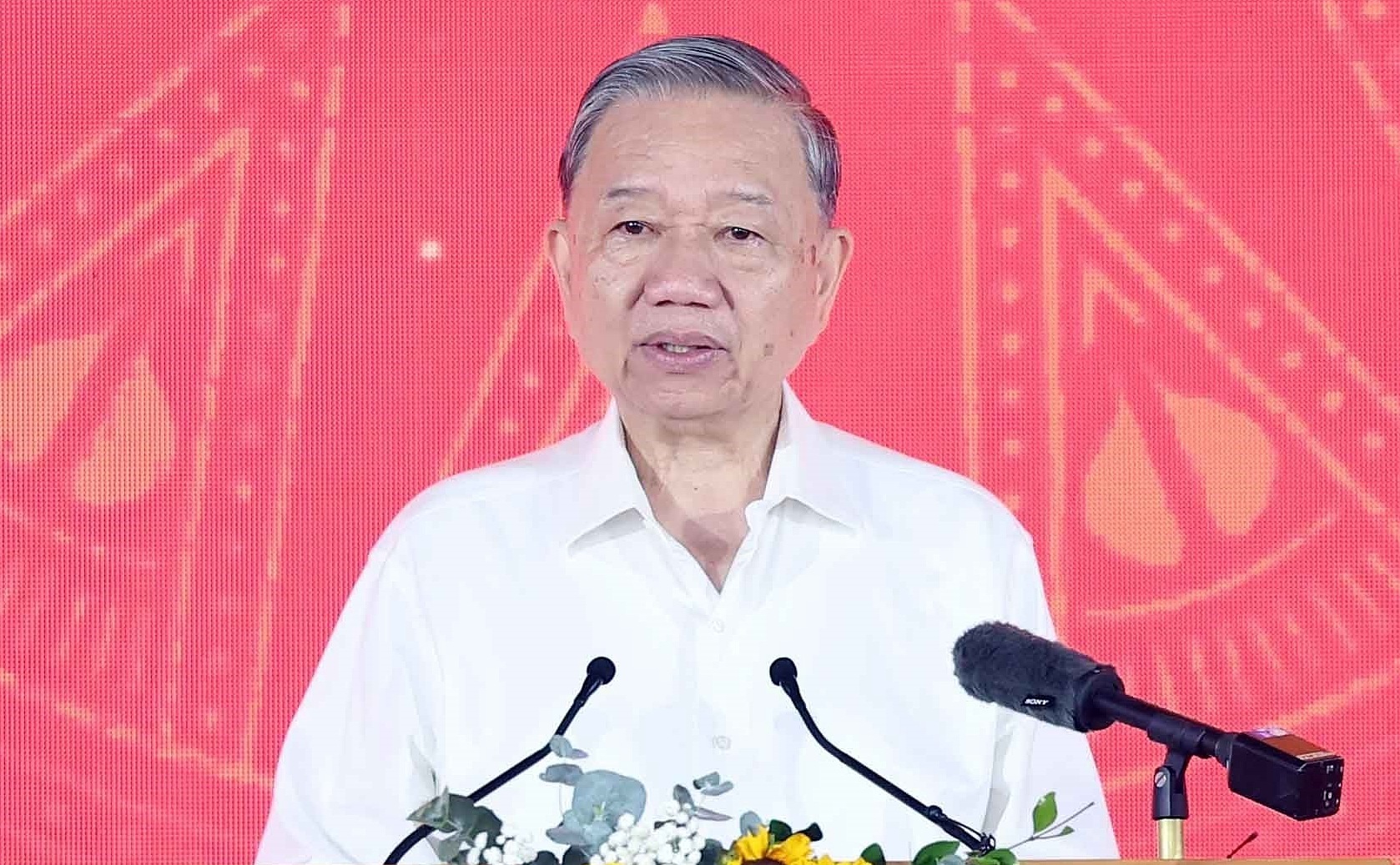 |
Party General Secretary To Lam speaks on the morning of 27/7. Photo: TTXVN |
For the Si Pa Phin primary and secondary school project to become a reality soon, the General Secretary requested local leaders to take decisive action, considering this a particularly important political task that "must be done well, quickly, and effectively." "Land, infrastructure, and capital disbursement must be ensured on schedule, while creating favorable conditions for construction units and teaching staff later," the General Secretary said, emphasizing that this project is for the people and the future of their children and must not be delayed or spread out.
The General Secretary requested that design, construction, consulting, and supervision units work with dedication and the highest sense of responsibility, considering this not just a construction project but a place where the hopes and dreams of border communities are entrusted. The units must ensure the quality of the project, occupational safety, technical and aesthetic aspects, making it a model school in the border area.
Local authorities need to pay attention to families with school-aged children, encourage people to send their children to school, and create conditions for them to complete their studies. "Building schools needs to be linked with preserving the national cultural identity. Teaching literacy must go hand-in-hand with teaching morality, love for the homeland, and the country," the General Secretary noted, urging people to cooperate and support the project's smooth implementation.
Central ministries and agencies are requested to coordinate with local authorities, village elders, armed forces, and people to care for education, viewing schools as "fortresses" of knowledge, culture, and patriotism at the border.
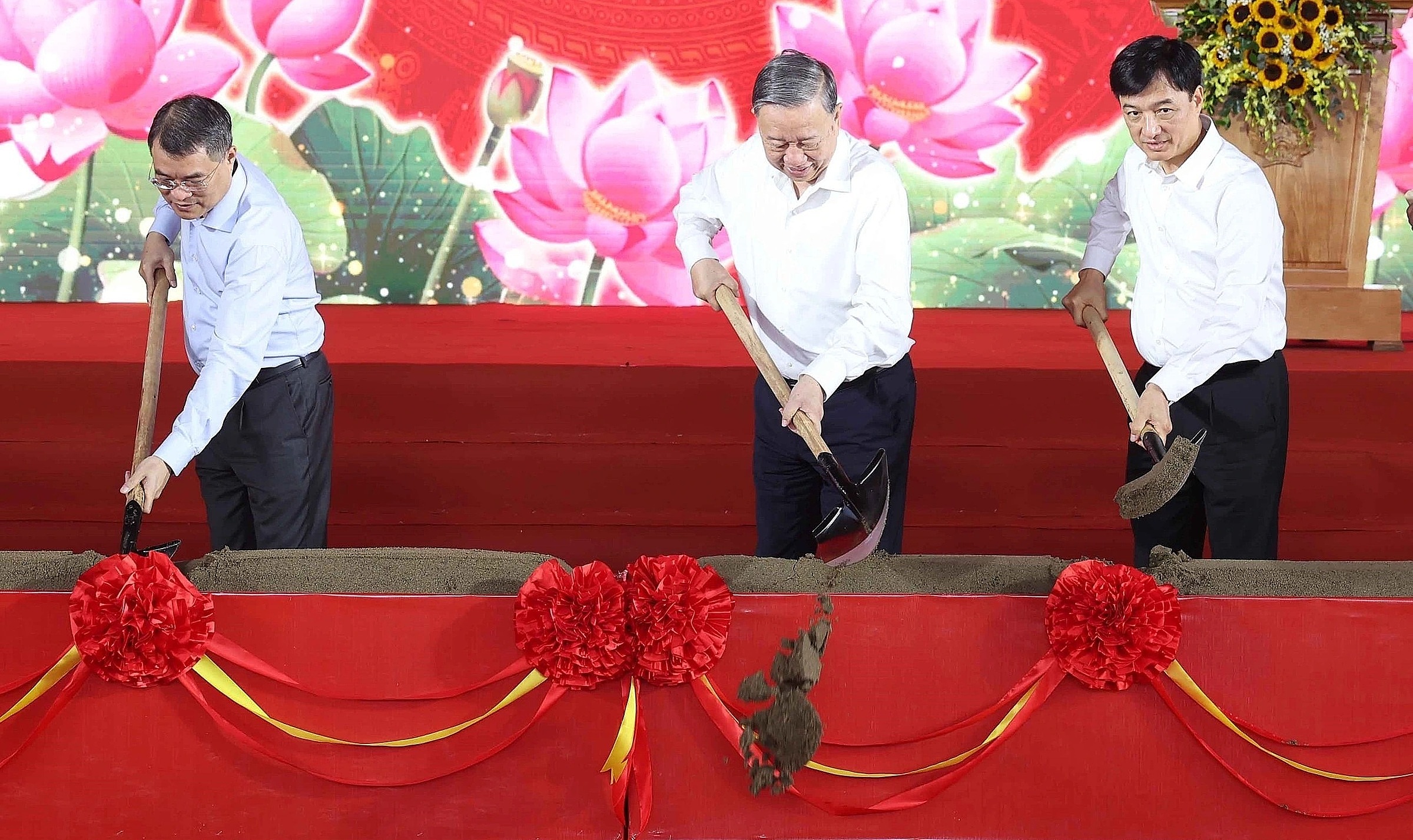 |
Party General Secretary To Lam and delegates perform the groundbreaking ceremony for the Si Pa Phin primary and secondary school in Dien Bien province on the morning of 27/7. Photo: TTXVN |
Dien Bien Provincial Party Committee Secretary Tran Quoc Cuong affirmed that he would coordinate with relevant units to ensure the project is implemented on schedule, with quality and safety, and put into use soon. The locality will select and arrange dedicated and responsible managers and teachers so that the school becomes a common home, a place to nurture knowledge and dreams for future generations, especially students from ethnic minorities in mountainous and border areas facing difficulties.
The Si Pa Phin primary and secondary school is the first project implemented under the Politburo's policy of investing in 248 primary and secondary boarding schools in border communes. The project is invested by the Dien Bien Department of Education and Training, with a total capital of 220 billion VND from the support of Hanoi City and social contributions. The school has 31 classrooms, dormitories, specialized classrooms, a multi-purpose building, a library, and a sports ground, meeting the learning and living needs of more than 1,000 students. The project is expected to be completed and put into operation in 2026.
Vu Tuan



